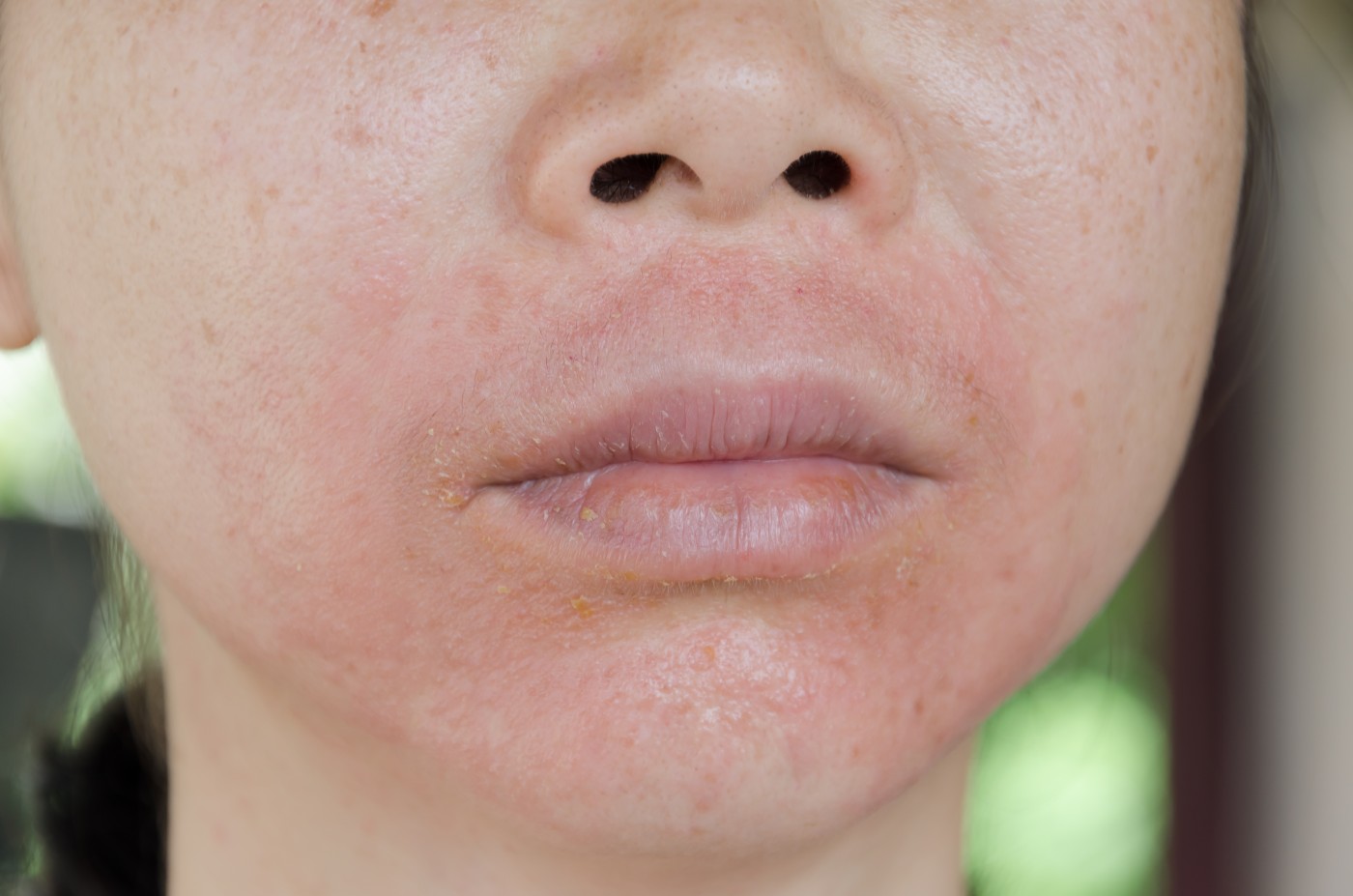Rosacea Appears to Be Linked to Multiple Sclerosis in Women, Study Reports
Written by |

Rosacea is an inflammatory skin condition affecting mostly fair-skinned individuals. A study from the University of Copenhagen, Denmark, recently showed that the condition in women is also associated with multiple sclerosis (MS).
Recent genome wide association studies (GWAS) have pinpointed genetic risk factors of the disease that also increase risk for type 1 diabetes and celiac disease. Several other studies have shown that genetic risk factors for a number of autoimmune diseases tend to cluster, and another GWAS found as many as 90 shared genetic regions linked to rheumatoid arthritis, celiac disease, multiple sclerosis, and type 1 diabetes.
Given the large genetic overlap between various autoimmune and inflammatory conditions, the study — “Clustering of autoimmune diseases in patients with rosacea,“ published in the JAAD — set out to explore if rosacea could be linked to multiple sclerosis, as well as a number of other autoimmune diseases.
The research team identified all patients diagnosed with rosacea in Denmark between Jan. 1, 1997, and Dec. 31, 2011, as either hospital in-patients or out-patients. The team then matched each patient with five controls of the same age, sex, and calendar time. In total, the study encompasses 6,759 rosacea patients and 33,795 controls.
Within this study group, researchers then identified all individuals with an MS diagnosis, and found that patients with rosacea had a 1.5-fold increased risk of MS compared to those without rosacea. Moreover, when scientists divided the sample by sex, they noted that the association was only valid in women.
Findings also showed that including cases identified by claimed prescriptions for metronidazole — a rosacea treatment seldom used for other skin conditions in Denmark — produced similar results.
The study also reported associations between rosacea and type 1 diabetes, celiac disease, and rheumatoid arthritis.
Since the study merely made observations of diagnoses in the general population, the researchers could not prove that the conditions share disease mechanisms. Earlier studies exploring other skin conditions and autoimmune diseases have found no, or even inverse, relationships, making it likely that shared genetic or environmental factors contributing to both diseases really exist.


